Exploring the Future of China Industrial Immersive Heaters at the 138th Canton Fair 2025: Trends and Market Insights
Table of Contents
- Emerging Technologies in Industrial Immersive Heating Systems
- Market Demand Trends for Immersive Heaters in China
- Key Players and Innovations Presented at Canton Fair 2025
- Sustainability Practices in Industrial Heating Solutions
- Future Projections for Immersive Heater Adoption in Various Sectors
- Impact of Policy Changes on the Immersive Heater Market in China
- Exploring the Efficiency and Applications of Immersive Type Industrial Flange Heaters: Key Insights from Industry Reports
- FAQS
- Conclusion
- Related Posts
As we get closer to the 138th Canton Fair in 2025, everyone’s talking about how quickly the industrial heating scene is changing—especially in China’s market for Immersive Heaters. If you’ve been keeping an eye on industry news, you’ve probably heard that China’s industrial heater market is expected to grow at around 5.3% CAGR over the next few years. A big part of that growth comes from the rising need for more energy-efficient and smarter heating solutions. Companies like Jiangsu Weineng Electric are really leading the charge here—making explosion-proof electric heaters that meet all the tough safety and performance standards. They’ve got tons of experience in designing, manufacturing, and setting up these systems, so they’re pretty well positioned to take advantage of new trends and innovations popping up in the industry. The upcoming fair is going to be a major opportunity for industry folks to check out the latest tech, swap insights about the market, and discuss ways to push sustainability forward. All in all, it’s shaping up to really influence what the future holds for China’s immersive heater market.

Emerging Technologies in Industrial Immersive Heating Systems
The industrial immersive heating scene is really on the cusp of some major changes, especially with big events like the 138th Canton Fair in 2025 coming up. New tech in this space is starting to shake things up — it's set to redefine how we think about efficiency and performance. I’ve seen some recent industry reports pointing out that single-phase immersion cooling tech is really picking up steam, especially for data centers. Why? Because it helps optimize energy use and keeps thermal management on point. Plus, the market for immersive heating solutions is expected to grow pretty fast — estimates are around a 12.5% annual growth rate through 2030, so things are definitely heating up.
As everything evolves, two-phase immersion cooling systems are becoming impossible to ignore. They offer way better cooling, which is a game-changer for huge data centers, AI and machine learning setups, and even crypto mining operations. Latest analyses suggest these two-phase systems can cut cooling energy needs by up to 30%. That’s a pretty huge savings and makes them a pretty attractive option for companies wanting to boost efficiency and sustainability. Watching how these techs develop and are showcased at the Canton Fair will definitely provide some key insights. It’s also a great chance for folks in the industry to connect, share ideas, and push innovation even further — exciting times ahead!"

Market Demand Trends for Immersive Heaters in China
The market for immersive heaters in China is really on the rise these days, thanks to tech getting better and more industries jumping on the bandwagon. Companies are on the lookout for heating solutions that are not just efficient but also eco-friendly, and that's where immersive heaters are really shining. They heat things up faster and use energy more effectively, which makes them perfect for stuff like manufacturing, food processing, and energy generation. Plus, with smart tech now—things like remote controls and system integrations—they're even more appealing because users can manage them more easily.
At the upcoming 138th Canton Fair in 2025, you’ll see lots of companies bringing out new designs and features that match what the market really needs right now. The buzz is all about eco-friendly materials, energy-saving tech, and IoT integration—stuff that’s become pretty much essential. And with China putting more focus on sustainability and tighter environmental rules, the need for heaters that line up with those principles is only going to grow. This is a great chance for manufacturers and investors to get in early and ride the wave of this fast-growing sector. It’s definitely an exciting time to be part of this heating revolution!
Exploring the Future of China Industrial Immersive Heaters at the 138th Canton Fair 2025: Trends and Market Insights - Market Demand Trends for Immersive Heaters in China
| Year | Market Demand (Units) | Growth Rate (%) | Key Applications | Consumer Segment |
|---|---|---|---|---|
| 2023 | 150,000 | 5.0 | Manufacturing, Textile | Industrial |
| 2024 | 158,000 | 5.3 | Food Processing, Packaging | Commercial |
| 2025 | 167,000 | 6.0 | Pharmaceutical, Chemical | Industrial and Commercial |
| 2026 | 175,000 | 6.5 | Automotive, Aerospace | Industrial |
| 2027 | 185,000 | 7.0 | Renewable Energy | Commercial and Industrial |
Key Players and Innovations Presented at Canton Fair 2025
The 138th Canton Fair happening in 2025 is shaping up to be quite exciting, especially when it comes to advances in industrial immersive heaters. You’ll definitely get to see some of the top players and the coolest new tech in the game. One name that really stands out is Jiangsu Weineng Electric Co., Ltd. — they’re known for their expertise in making explosion-proof electric heaters. It’s pretty clear that they’re serious about quality, from design all the way through production and commissioning, which helps keep them on top of what the market needs right now.
As things keep shifting in the industry, a few trends are worth paying attention to. Safety and efficiency are more important than ever, so we’re seeing new heater models that meet tough industrial standards. Plus, more manufacturers are jumping on the smart tech bandwagon — giving users better control and monitoring of heating systems. Companies like Weineng are leading this charge, really pushing innovation into their products.
**Quick tip**: When you’re checking out potential suppliers at the Canton Fair, it’s smart to focus on exhibitors who are all about innovation and safety. Look for brands with a solid track record, like Weineng — they can give you good insights into the latest trends and tech shaping the industry. Chatting with these key players can really help you make smarter decisions when it comes to choosing heating solutions for your projects.
Sustainability Practices in Industrial Heating Solutions
With the 138th Canton Fair just around the corner in 2025, it's pretty clear that sustainability is becoming a big deal in industrial heating solutions. The global market for this stuff is booming — expected to jump from around USD 1.4 billion in 2024 to about USD 2.6 billion by 2034, growing at a solid 6.3% CAGR. That means innovation in electric industrial heaters isn’t just nice to have; it’s kinda essential if companies wanna keep up with operational needs and still play nice with environmental standards. More and more, businesses are catching on that they need to adopt smarter, climate-friendly practices—kind of like what’s happened with Colombia’s sustainable coffee industry, which has shown you can grow without risking the environment and even boost resilience at the same time.

Take Jiangsu Weineng Electric Co., Ltd., for example—these guys really represent the shift toward greener industrial heating. They use cutting-edge tech to make explosion-proof electric heaters, and they’re focused on things like waste heat recovery to create more efficient solutions. It’s all part of a bigger picture—moving toward carbon neutrality, a goal many companies in the chemical sector are striving for, especially as regulations keep getting stricter. All in all, these advancements show how industries are ramping up their game when it comes to being environmentally responsible, which is pretty encouraging if you ask me.
Future Projections for Immersive Heater Adoption in Various Sectors
So, it looks like the adoption of immersive heaters across different industries in China is really about to pick up speed in the next few years. This push is mainly driven by advancements in tech and a growing demand for energy efficiency. Companies are on the lookout for smarter ways to handle heating processes, and these immersive heaters seem to be just the ticket—offering better heating while using less energy. You’ll probably see sectors like manufacturing, food processing, and agriculture really embracing these systems, mainly to keep up with operational needs and environmental standards.
In manufacturing, for example, immersive heaters could make a big difference by providing even, consistent heat—leading to better product quality and less waste. When it comes to food processing, precision is everything—these heaters help keep temps just right, which is crucial for safety and quality. And in agriculture, especially in controlled environment farming, they hold a lot of promise for boosting crop yields without gulping down excessive resources. Overall, it seems like this tech is set to change the game for a lot of industries, making processes more sustainable and efficient down the line.
Future Projections for Immersive Heater Adoption in Various Sectors
Impact of Policy Changes on the Immersive Heater Market in China
You know, the immersive heater market in China is really going through some big changes right now, mostly because of recent policy shifts. The government’s rolled out a bunch of reforms really aimed at making energy use more efficient and cutting down on carbon emissions. It’s pretty interesting because these policies aren’t just pushing manufacturers to get more innovative — they’re also nudging the industry toward adopting newer, greener heating tech that sticks to stricter environmental standards. The impact is huge; companies are starting to shift their focus toward solutions that are not only better for the planet but also meet folks’ demand for affordable, effective heating options.
On top of that, this new policy environment has been attracting some serious foreign investment into China's immersive heater scene. With international firms teaming up with local players, there’s a real buzz around R&D — they’re coming up with some pretty cool, state-of-the-art products. This kind of collaboration is likely to give Chinese companies an edge globally, especially as they tap into new tech and innovative practices. All in all, these policy changes aren’t just shaking up how things work right now; they’re setting the stage for a more sustainable, forward-thinking future in China’s industrial heating industry.
Exploring the Efficiency and Applications of Immersive Type Industrial Flange Heaters: Key Insights from Industry Reports
In the quest for operational efficiency in industrial applications, immersion heaters have emerged as a pivotal solution. The latest industry reports cited in "Exploring the Efficiency and Applications of Immersive Type Industrial Flange Heaters" illustrate that these heaters can be custom-manufactured to meet the unique requirements of various processes. With advanced technology, companies like WNH leverage their expertise to design heaters tailored to specific needs, effectively optimizing system performance. This bespoke approach allows industries to adapt their heating solutions based on materials, wattages, and configurations, ensuring that the nuances of each application are addressed effectively.
The integration of immersion heaters provides substantial benefits, including enhanced energy efficiency and prolonged equipment lifespan. WNH emphasizes collaboration with clients to understand their needs, from budget constraints to specific operational challenges. This personalized service results in heaters that not only fit seamlessly within existing systems but also contribute to significant cost savings over time. The careful selection of materials and designs can lead to superior thermal conduction and performance, elevating the effectiveness of industrial processes. Ultimately, the insights gathered from industry reports highlight a clear trend: customized immersion heaters are redefining standards, pushing efficiency and effectiveness to new heights in diverse industrial environments.
FAQS
: Emerging technologies in industrial immersive heating systems are redefining efficiency and performance standards, with a particular focus on single-phase and two-phase immersion cooling technologies.
The 138th Canton Fair is an important platform for showcasing advancements and fostering collaborations in the industrial heating sector, particularly highlighting innovations and sustainability practices.
The market for immersive heating solutions is projected to experience significant growth, with an estimated compound annual growth rate (CAGR) of around 12.5% by 2030.
Two-phase immersion cooling systems provide superior cooling capabilities, potentially reducing overall cooling energy consumption by up to 30%, making them ideal for applications like hyperscale data centers and cryptocurrency mining.
Companies are integrating climate-smart practices and innovations in electric industrial heaters, emphasizing waste heat recovery and explosion-proof technologies to meet both operational needs and environmental standards.
The global market for sustainable industrial heating solutions is expected to grow from USD 1.4 billion in 2024 to USD 2.6 billion by 2034, with a CAGR of 6.3%.
The adoption of immersive heaters is expected to grow significantly in sectors such as manufacturing, food processing, and agriculture, driven by the need for energy efficiency and improved thermal processes.
Immersive heaters improve production processes by providing uniform heating, which enhances product quality and reduces waste.
Immersive heaters are vital for ensuring food safety and quality due to their ability to maintain precise temperature control.
In agriculture, immersive heaters are being explored for use in controlled environment agriculture to maximize crop yields while minimizing resource usage.
Conclusion
So, the 138th Canton Fair in 2025 is pretty exciting — it’s really putting the spotlight on China’s fast-growing world of Industrial Immersive Heaters. You know, all these new techs and innovations that are about to shake up how industries handle heating. A lot of major players, like Jiangsu Weineng Electric Co., Ltd., are really leading the way, especially with their expertise in making explosion-proof electric heaters. That’s super important for safety and making sure everything runs smoothly no matter the application.
Shoot, the demand for these immersive heaters in China just keeps climbing. Folks are really focused on sustainability and cutting down energy use across different sectors. Plus, with the government passing new policies that make it easier to adopt these techs, the outlook looks bright. Experts are saying we’re heading toward a pretty big shift towards these advanced heating systems — they’re about to become a key part of industrial processes. And honestly, as the industry keeps evolving, the push for innovation and top-notch quality is definitely setting the stage for a whole new era in industrial heating.
Related Posts
-

Emerging Technologies for Industrial Flange Heater Solutions by 2025
-
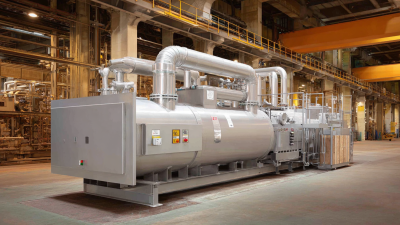
The Essential Ultimate Guide to Choosing the Best Explosion Proof Industrial Heater Suppliers
-
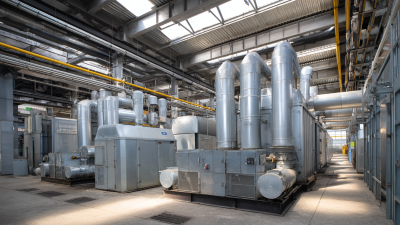
Essential Checklist for Obtaining the Best Industrial Heater Bundle Quotes
-
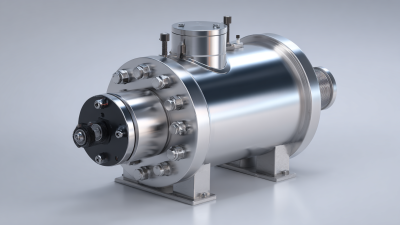
The Ultimate Guide to Choosing the Best Industrial Flange Heater Suppliers for Your Needs
-
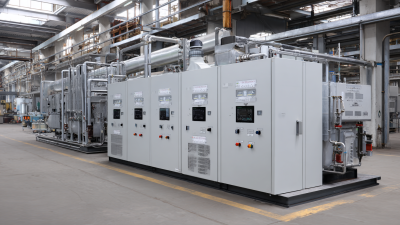
Innovative Solutions for China Industrial Heater Bundle Efficiency and Reliability
-
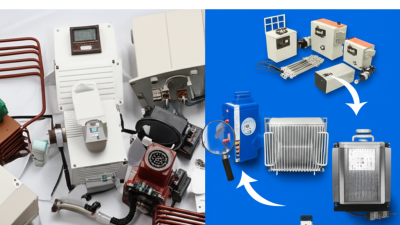
Advantages of Choosing Customized Industrial Heater Manufacturers for Your Business Needs
Blog Tags:


